Want to sharpen your logical thinking skills? When you develop logical thinking, you can make the right decisions, solve problems and find out the truth easily. Here’s how to get started.
What is logical thinking?
Logic refers to the analysis of proper and improper reasoning. It allows our mind to distinguish between what’s correct and incorrect and what’s right and wrong. Logical thinking can be defined as observing and evaluating a situation to find out a logical solution to a probable problem. By utilizing your reasoning abilities, you can objectively look at the problem and reach a rational conclusion regarding how to move ahead. You can sharpen and develop logical thinking by utilizing your logical reasoning skills and using available facts to overcome a problem in your life.
Logical reasoning skills refer to our ability to focus on the task at hand following a rational thought process that connects different pieces of information to reach the most logical conclusion. Our reasoning skills enable us to overcome various life challenges that we encounter on a daily basis. Logical thinking involves a well-reasoned and coherent cognitive process that helps us to actively reflect on objective reality by utilizing various forms of thought, such as reasoning, judgments and concepts. By thinking, analyzing, and abstracting, we can develop logical thinking which helps us to understand the unique nature and properties of different things. This enables us to develop notions and concepts and utilize them to understand the objective of our reality.
Logical thinking is based on concepts, judgments, and reasoning and primarily involves induction & deduction, analysis & synthesis and varies from the abstract to the concrete.
Also read: 22 Tips to Keep Your brain Sharp and Young At Any Age
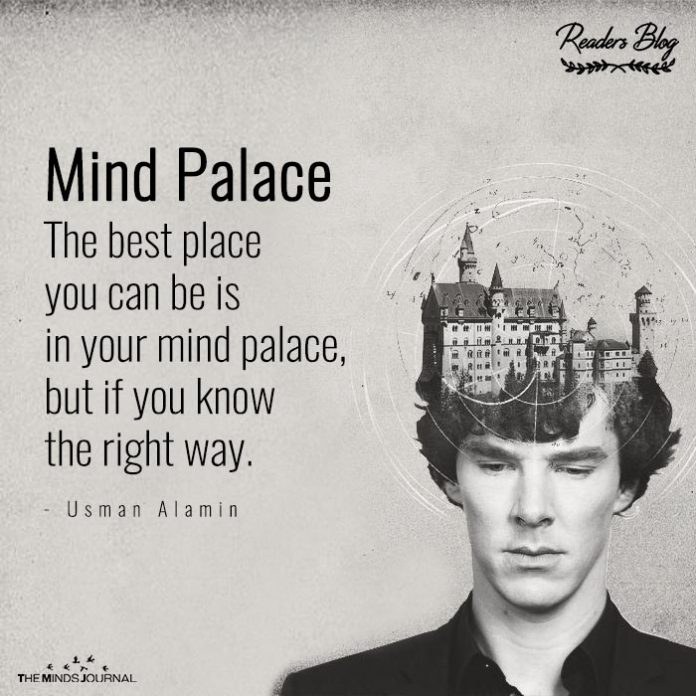
Logical reasoning and emotions
Recent studies have found that our ability to develop logical thinking and reasoning is significantly influenced by our emotions.
According to a 2014 scientific study “Emotions can have a significant effect on the way we think, decide, and solve problems.” {1} The researchers also found that emotions have a “clear effect” on reasoning performance. People with neutral mood reasoning tend to perform better than people with positive or negative moods. The study also found that our ability for logical reasoning is also affected by the content of the problem and anxiety disorders related to specific phobia
Also read: 16 Most Common and Weird Mind Tricks Your Brain Plays On You
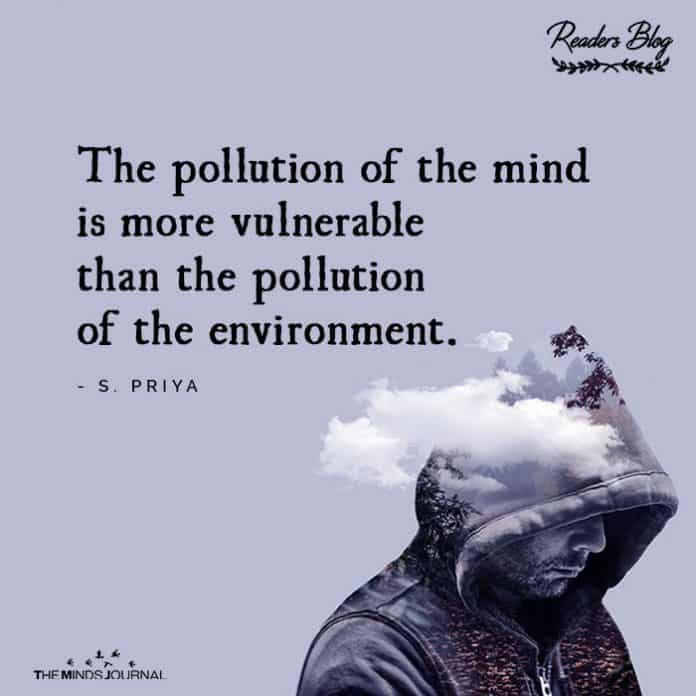
Why develop logical thinking skills
Logical thinking enables you to solve various problems you encounter in life through logic and reasoning. It allows you to make practical decisions, develop productive and creative ideas, set realistic goals, and create strategies to achieve them. Logical thinking equips you with the tools to achieve success and move ahead in life while overcoming the numerous obstacles that come up throughout your life. By sharpening your logical reasoning and thinking skills, you will be able to find solutions that will help you thrive and live happily.
How to develop logical thinking
So you want to improve your logical reasoning skills? There are many ways to develop logical thinking in your daily life.
Here are 10 effective ways for you to boost your logical thinking skills and get your brain to achieve more.
1. Use psychological distance
Psychological distance refers to a cognitive separation that is created between you and other crucial elements like a person, an event or a certain problem. According to Construal-Level Theory (CLT) of Psychological Distance, the further an object is from you, the more you will think about it in a more abstract way. Psychological distance includes various dimensions like –
- Temporal distance
- Spatial distance
- Social distance
- Hypothetical distance
- Informational distance
- Experiential distance
- Affective distance
When you increase the distance between you and your problem on a mental and hypothetical level, you can think about more productive and creative solutions. Moreover, you can also acquire different perspectives from others and develop a new pattern of thinking to face your problem.
According to a 2010 study, psychological distance tends to be egocentric. “Its reference point is the self in the here and now, and the different ways in which an object might be removed from that point,” whether hypothetically, or in time and space or in social distance, all these include separate distance dimensions, adds the study. {2} It has also been observed by experts that when we increase psychological distance to detach ourselves from a problem, we can increase our creative skills as well.
Psychological distance allows us to think abstractly and access unrelated connections and unexpected concepts which increases our logical reasoning abilities.
2. Think strategically
Strategic thinking is a crucial element of logical thinking. When you start thinking strategically, your brain gets empowered and super-activated. Strategic thinking can help you find solutions to various problems related to your career and personal life. Here are a few habits you can develop to start thinking strategically –
- Interpreting (look for patterns)
- Critical thinking ( ask questions)
- Anticipating (think about the future)
- Deciding (reach conclusions)
- Learning (study mistakes)
- Playing (strategic games)
- Practicing (developing strategies)
Also read: 8 Daily Habits That Are Secretly Damaging Your Brain
3. Use conditional statements
Conditional statements can help you reach logical conclusions. When you start thinking in conditional sentences, you will be able to identify the causes as well as consequences of different facts. Conditional sentences express factual or hypothetical implications and outcomes. These are also called ‘If Clauses’ or ‘Conditional Clauses’ as the validity of the main clause in the sentence depends on specific circumstances. It is mainly used to show that the main clause will occur only if a particular condition is realized.
For instance, if it rains, the ground will be wet. Here, if the context or the premise happens, then the conclusion will also occur. You can use conditional statements in various aspects of your life and observe if the rule holds true. This is an excellent way to develop logical thinking.
4. Visualize using mind maps
Vividly visualize the problem you are facing and utilize mind maps to organize all the available information visually. Mind maps are a simple graphical representation of a problem and ideas related to probable solutions on a blank page. It can help your mind to look for an appropriate solution by focusing on the ideas, improving your creative thinking, and generating more associated ideas from the main ideas.
You can make a hand-drawn mind map by adding the main problem and major ideas and include branches identifying the reasons for the issue at hand and sub-branches to include additional ideas. You can also add branches for the most effective possible solutions and add further details. This is undoubtedly a highly effective problem-solving tool that will help to develop logical thinking.
5. Enjoy Mathematics
Do you hate math? Do geometry and algebra give you cold sweats? Well, there’s no reason to worry about it. Now that you have become your own person, solving mathematics problems can help your brain boost it’s logical reasoning abilities. It is one of the best exercises for the brain. In fact, a 2008 study found that solving arithmetic problems can improve cognitive functions in normal adults.{3}
Once you know how to make math fun and enjoyable, you can easily improve your logical thinking skills. If you still struggle with math, then you can use some math apps and games or play Sudoku to get more comfortable with numbers and boost your brain’s abilities.
6. Play with puzzles & crosswords
Investing your time in complex games like chess, puzzles, Rubik’s Cube and crosswords enable you to exercise your mind. These strategy games require that you analytically think about the problem and figure out the solution backward. You can use the same strategy to solve problems in your life.
Also read: 3 Ways to Improve Your Brain Health
7. Read and solve mysteries
If you want to develop logical thinking, then reading detective novels and crime stories are one of the most effective and enjoyable ways to do it. If you are not a fan of reading, then you can watch mystery movies, TV shows, or real-life documentaries as well. And to gain that detective-like edge, try to solve the mystery before the protagonist does.
8. Get some exercise
Recent studies have found that regular exercise can significantly help our brain to enhance memory and thinking skills. {4} One 2018 study found that “moderate-intensity exercise is related to increased performance in working memory and cognitive flexibility, whereas high-intensity exercise improves the speed of information processing.” {5} Further research has revealed that regular aerobic exercise training can help to increase the size of the hippocampus, a crucial part of the human brain, which can improve learning and spatial memory. {6}
In fact, engaging in regular exercise of high or moderate intensity for a period of 6 to 12 months can also increase the volume of certain regions in the brain.
9. Debate

Conducting a debate is another great technique for improving logical thinking. These inspire you to look for facts, details, logical reasons, causes, and consequences related to the topic and use them in your arguments in a strategic way. Debates related to science, politics and philosophy are excellent for your brain as it compels you to evaluate and analyze key points and use available information to counter your opponent.
10. Get creative
Creative skills like writing, painting, drawing, sculpting, making music, or creating crafts can significantly stimulate your brain and help you develop logical thinking. Creative thinking improves your problem-solving skills that help to boost your performance at work. Pursuing your creative interests also helps to reduce stress, anxiety, and depression.
Also read: How Playing a Musical Instrument Can Improve Your Brain
Apart from these, there are some other ways to develop logical thinking, such as –
- Practicing Yoga and meditation
- Listening to classical music
- Learning a new language
- Learning new skills
- Getting proper rest and nutrition
- Socializing with others
- Playing sports
- Asking more questions
- Anticipating the outcome of decisions
- Playing card games
Boost your brain

You can easily develop logical thinking by following the tips mentioned above and practicing them daily. These techniques allow you to approach logical reasoning naturally and use it to solve various daily problems in your life.
So go ahead and try them. The methods mentioned above will not only improve your logical reasoning skills but help you to become more productive and effective in general.
Also read 25 Interesting Psychological Facts You Didn’t Know About Yourself
Reference: 1. https://www.ncbi.nlm.nih.gov/pmc/articles/PMC4050437/ 2. https://www.ncbi.nlm.nih.gov/pmc/articles/PMC3152826/ 3. https://www.ncbi.nlm.nih.gov/pmc/articles/PMC2276592/ 4. https://www.ncbi.nlm.nih.gov/pmc/articles/PMC3951958/ 5. https://www.ncbi.nlm.nih.gov/pmc/articles/PMC5934999/ 6. https://www.ncbi.nlm.nih.gov/pmc/articles/PMC3041121/
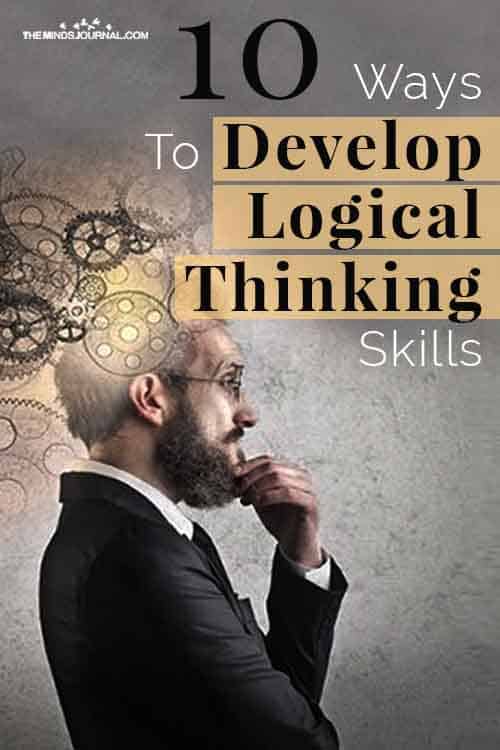

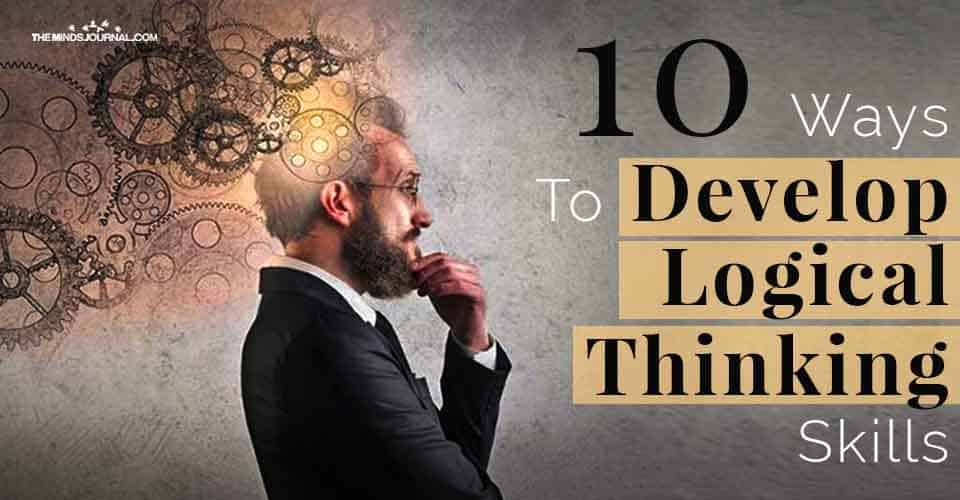




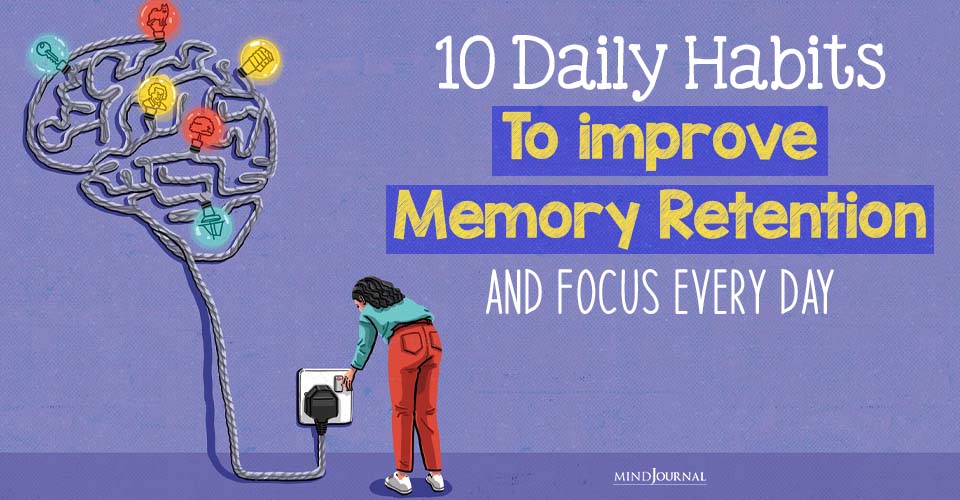


Leave a Reply